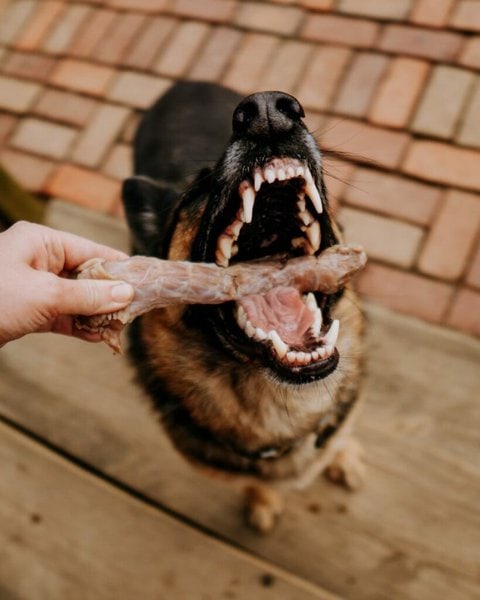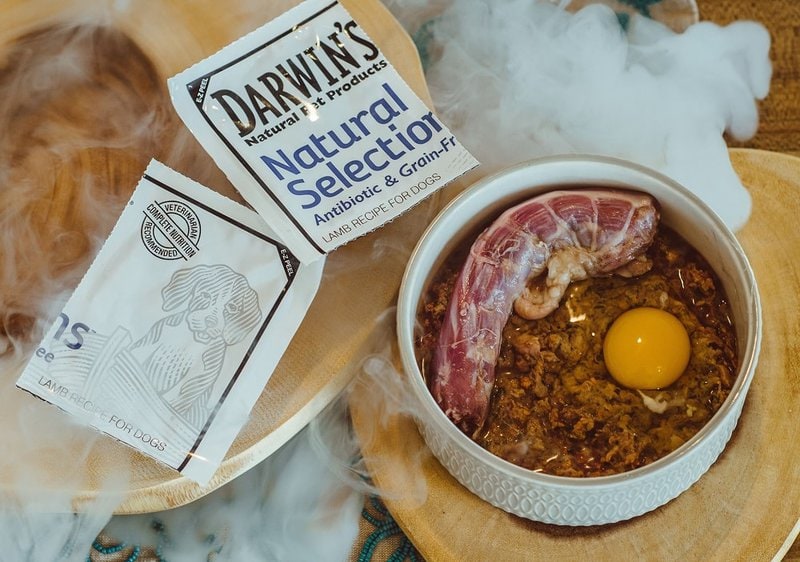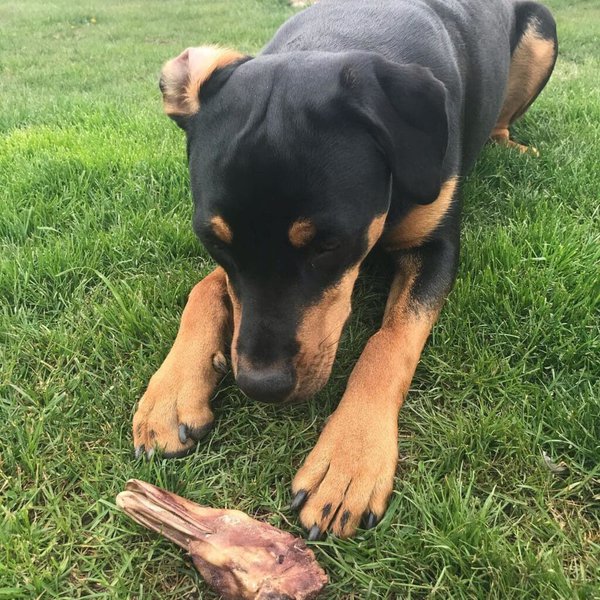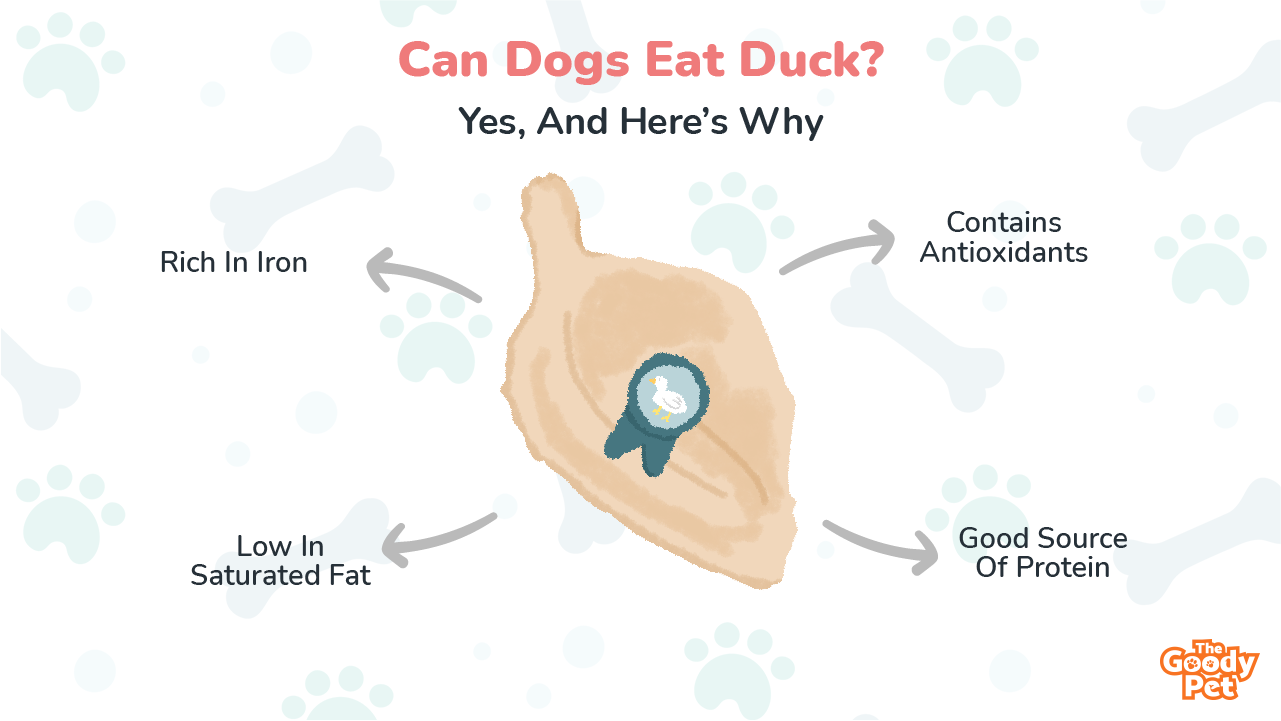Our dogs need the right combination of protein, fats, and carbohydrates to have a well-balanced diet, with protein making up a good percentage. With lots of choices in the market, some might recommend duck as a good protein source. But, can our furry pets eat this species of waterfowl?
The simple answer is yes. Ducks are perfectly safe for dogs to eat. It is considered much healthier than its more famous cousin, the chicken. Duck can be a great alternative protein for dogs who have developed allergies to beef or chicken.
Duck contains more healthy unsaturated fats and has more iron than most poultry. It is also more flavorful, with a taste that is much closer to red meat than chicken. Duck is also easier to digest, and the variety of nutritional benefits it can give might surprise you.
In this article, we will look into the advantages of feeding duck to your dog and the ways you could add it to their diet if you want to add variety to their meals.
Can You Feed Duck To Dogs?

Yes, duck is good for dogs for several reasons. The list below enumerates the many benefits of adding duck to your dog’s diet.
Good Source Of Protein
Duck is a healthy source of protein which is considered the building block of life. Each cell in our dog’s body and ours contains protein, which is made up of a chain of amino acids.
Duck meat is rich in amino acids, such as lysine, leucine, valine, isoleucine, glutamic acid, and aspartic acid.
All of these amino acids help in the metabolism of various nutrients that would be needed for developing stronger musculoskeletal, nervous, and immune systems.
Duck meat’s lean composition also makes it easier to digest and provides fewer calories, cholesterol, and saturated fat that could increase the risk of heart disease.
Low In Saturated Fat
While duck meat has the reputation of having a high-fat content, it contains mostly polyunsaturated fats which are beneficial to your dog’s health, like omega-3 and omega-6 fatty acids.
Omega-3 fatty acids help improve cardiovascular health by lowering triglycerides and keeping the arterial walls free from plaques. It also helps in reducing inflammation in the organs, as well as, supporting your dog’s immune health.
Omega-6 fatty acids, on the other hand, are needed for normal reproduction, cell repairs, immune functions, and skin and coat health.
Contains Antioxidants
Duck meat also contains small amounts of the minerals selenium and zinc, which have antioxidant properties. These minerals increase immune health and protect cells from oxidative damage.
They are also found to improve thyroid function which is essential for your dog’s metabolism. Problems associated with the thyroid affect their behavior and energy levels.
Rich In Iron
There is enough iron in duck meat to meet your dog’s daily iron needs.
Iron is responsible for hemoglobin production in the blood that carries oxygen to different parts of the body. Iron is also an essential component in some hormone production.
Deficiency in this mineral could lead to low energy levels, weakness, and anemia.
Rich In Vitamin B
Duck contains several B vitamins, particularly niacin and B12.
Niacin plays an integral part in converting carbohydrates into glucose and also in the metabolism of fats and proteins into energy.
Vitamin B12, on the other hand, is an integral part of the function and development of brain and nerve cells, as well as red blood cell formation and DNA synthesis.
How Do I Cook Duck For My Dog?

If you wish to incorporate duck meat into your dog’s diet, there are several options you can choose from.
One is to buy duck-based dry dog food, canned food, treats, or jerkies. Another option is to cook duck yourself by roasting, grilling, or frying it.
Remember to introduce duck slowly at first to test if there is any adverse reaction to duck like vomiting, diarrhea, or skin itchiness.
It is advisable to consult with your veterinarian when introducing new foods, but for the most part, duck allergies are quite rare.
Roasting
Roasting is the most popular method, and it is done by placing the duck in a roasting pan in a 350 degrees Fahrenheit preheated oven. Cooking time depends on the size of the duck, but duck breasts roasted on their own can take 25 to 30 minutes.
Check if it is done when there is no presence of blood or internal redness.
Duck is usually served medium rare to us humans, but as an extra precaution for salmonella poisoning, cook it until well done for our dogs. I’m sure they would not mind.
Once done cooking, you can shred it into small pieces and always remove any bones. Cooked bones are brittle and can cause choking or cause internal injury to your dog.
Grilling
You can also cook duck by grilling a piece of the breast for at least 5 minutes on each side, or stir-frying cubed or stripped pieces of the meat.
Remember to keep it simple and go easy on the salt, or do not use it at all. A dash of rosemary could be added if you want to add some flavor.
Frying
Another option is to fry some ground duck meat. Remove any excess oil from the cooked duck and mix it with their regular food.
What Parts Of A Duck Can A Dog Eat?
Almost all duck parts can be given to your dog, from the meat to some internal organs, like the heart, kidneys, liver, and other body parts, like the neck, head, bones, and duckbill.
The skin can also be served together with the meat but refrain from giving too much because of the fat content.
Bones are better served raw because they are less brittle than cooked ones. Also, take into account the size of your dog because some dogs have difficulty digesting bones.
Can Dogs Eat Raw Duck?
Yes, but before serving raw duck to your dog, be sure to buy the duck from reputable sources to avoid any bad contamination and disease like salmonella poisoning.
And again, check with your veterinarian before giving raw duck to avoid any health problems.
Feeding raw duck has some advantages. It satisfies your dog’s chew drive, exercises the jaw and neck muscles, as well as cleans the teeth and gums.
To serve raw duck, you can cut it into parts, like you would a chicken. Some dog owners would give duck frames or duck carcasses that have a good amount of cartilage and some meat.
Just make sure to cut the pieces that would be suitable for your dog’s size. Some dogs may not take well to the bones and cartilages, and you might need to de-bone some parts.
Also, avoid giving raw duck to dogs with obesity, digestive diseases, and pancreatitis due to the high-fat content.
As mentioned earlier, duck is a great source of polyunsaturated fat, but too much of this may exacerbate the current health problems.
Giving raw duck to puppies is also not advisable because of the choking risk.






